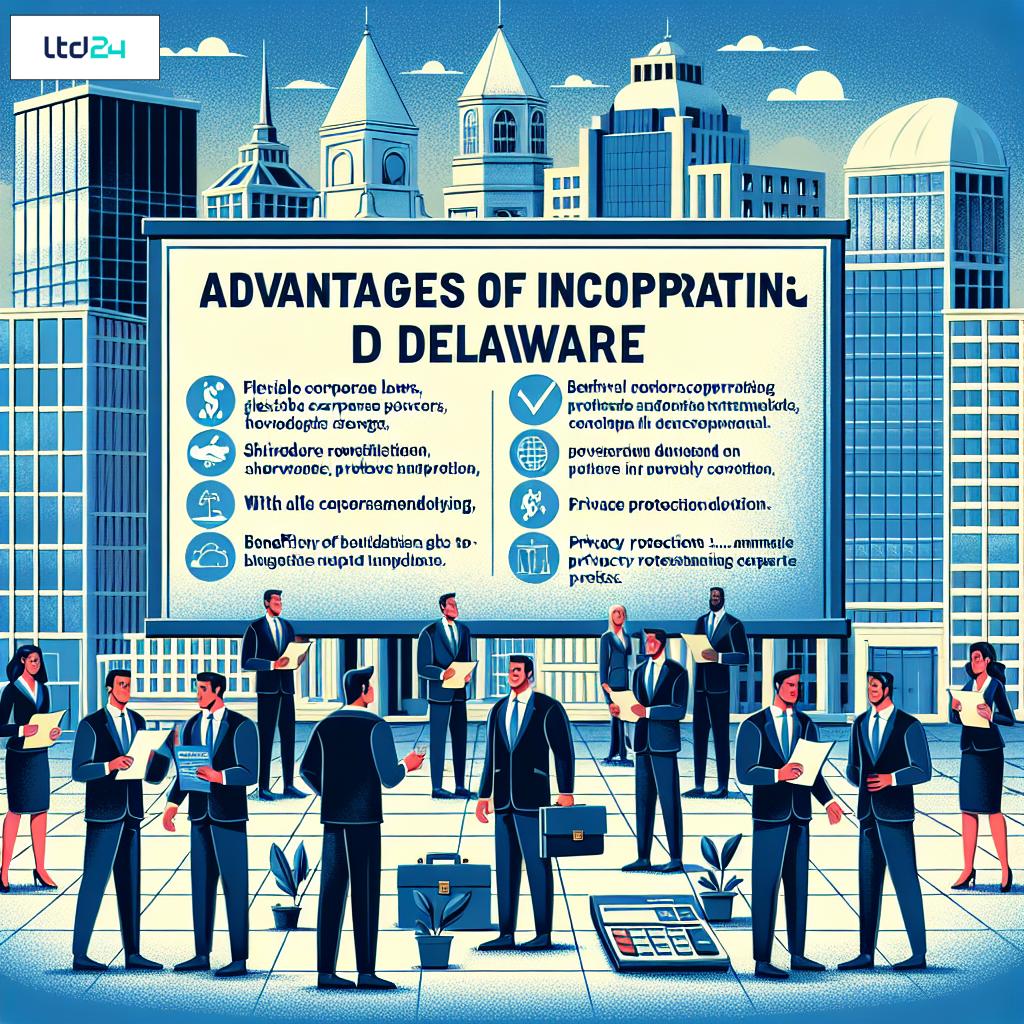Understanding the Incorporation Landscape
The establishment of a corporate entity through formal registration with governmental authorities constitutes the foundation of business legitimacy in the global marketplace. Company incorporation services provide essential support for entrepreneurs who seek to navigate the complex web of regulatory requirements, statutory obligations, and administrative procedures that govern the establishment of legal business entities. As cross-border commerce accelerates, the demand for specialized incorporation expertise has intensified, particularly among business founders who recognize the strategic advantages of jurisdictional selection. The discerning business proprietor must carefully evaluate service providers based on their technical proficiency, jurisdictional knowledge, and procedural efficiency. Companies seeking expansion beyond domestic borders frequently require assistance with multi-jurisdictional compliance matters, including Articles of Incorporation, Memorandum of Association, and shareholder agreements. The selection of an incorporation service with international capabilities can significantly reduce the administrative burden and compliance risks associated with company formation. For guidance on establishing a corporate presence in specific markets, entrepreneurs may wish to explore resources such as UK company formation for non-residents.
Jurisdictional Selection Criteria
The selection of an optimal jurisdiction for company incorporation represents a fundamental strategic decision with far-reaching implications for taxation, operational flexibility, and corporate governance. Jurisdictional advantages vary significantly across territories, with certain regimes offering preferential treatment regarding corporate tax rates, dividend withholding provisions, and capital gains assessments. Sophisticated incorporation service providers conduct comprehensive jurisdictional analyses that consider factors including tax treaty networks, substance requirements, and beneficial ownership disclosure regulations. Entrepreneurs must carefully evaluate how specific legal frameworks align with their business objectives, considering elements such as shareholder protection mechanisms, director liability provisions, and reporting obligations. The distinction between common law and civil law jurisdictions introduces additional complexity, particularly regarding contract enforcement and dispute resolution mechanisms. For businesses with international aspirations, consideration of factors such as the OECD’s Base Erosion and Profit Shifting (BEPS) initiatives and the EU’s Anti-Tax Avoidance Directives may significantly influence jurisdictional selection. Entrepreneurs interested in Bulgarian incorporation options might find valuable information at Bulgaria company formation, while those exploring Irish opportunities should consult Open a company in Ireland.
Regulatory Compliance Expertise
The intricate web of regulatory requirements governing company incorporation necessitates specialized knowledge that extends beyond basic form-filling capabilities. Superior incorporation services demonstrate meticulous attention to compliance obligations, including beneficial ownership registries, ultimate beneficial owner (UBO) verification procedures, and anti-money laundering (AML) protocols. Professional incorporation advisors maintain current knowledge of evolving regulatory frameworks, such as the Economic Substance requirements implemented in numerous offshore jurisdictions and the Corporate Transparency Act in the United States. The administrative burden associated with compliance can be substantial, encompassing director’s certificates, bank reference letters, and certified corporate documentation. Experienced service providers implement robust verification protocols to satisfy Know Your Customer (KYC) requirements while minimizing procedural delays. The complexities of cross-border compliance are particularly evident in matters pertaining to VAT registration, customs documentation, and trade identification numbers. For entrepreneurs requiring assistance with these matters, specialized services like Company registration with VAT and EORI numbers can provide targeted support. The Financial Action Task Force (FATF) establishes international standards for combating money laundering and terrorist financing that significantly impact incorporation processes worldwide.
Corporate Structure Optimization
The configuration of a corporate structure requires careful consideration of multiple factors, including ownership distribution, governance mechanisms, and operational requirements. Expert incorporation consultants provide invaluable guidance regarding the selection of appropriate entity types, such as Limited Liability Companies (LLCs), Public Limited Companies (PLCs), or Limited Partnerships (LPs), based on specific business objectives. The establishment of holding companies, operational subsidiaries, and special purpose vehicles (SPVs) creates opportunities for asset protection, risk segregation, and tax optimization. Incorporation specialists assist with the drafting and filing of essential corporate documents, including Articles of Association, shareholder agreements, and director service contracts. The allocation of share capital, including the creation of different share classes with varying rights regarding dividends, voting, and capital distribution, represents a critical aspect of corporate structure planning. Professional guidance regarding nominee director arrangements, corporate secretarial services, and registered office provisions can enhance operational efficiency while maintaining compliance with statutory requirements. For specific information regarding share issuance in the UK context, business founders may consult How to issue new shares in a UK limited company, while those seeking directorship guidance should reference Be appointed director of a UK limited company. The International Chamber of Commerce (ICC) provides valuable resources on international corporate governance standards.
Banking and Financial Infrastructure
The establishment of appropriate banking relationships constitutes a critical component of effective company incorporation. Premier incorporation service providers facilitate introductions to financial institutions that accommodate the specific requirements of newly formed entities, including multi-currency accounts, international payment capabilities, and merchant services. The alignment between corporate structure and banking infrastructure requires consideration of factors such as signatory protocols, transaction monitoring thresholds, and documentation requirements. Opening corporate bank accounts has become increasingly challenging due to enhanced due diligence procedures implemented by financial institutions globally. Companies with cross-border operations frequently require specialized banking arrangements that accommodate intercompany transactions, supplier payments, and customer receipts across multiple jurisdictions. Incorporation services with established banking relationships can significantly reduce the administrative friction associated with account opening procedures. The integration of financial technology solutions, including payment gateways, foreign exchange services, and treasury management systems, represents an increasingly important aspect of post-incorporation support. Financial institutions apply varying criteria regarding acceptable business activities, beneficial ownership structures, and jurisdictional connections. Entrepreneurs establishing online businesses may find particular value in resources such as Set up an online business in UK. For broader financial guidance, organizations like the Bank for International Settlements (BIS) provide invaluable research on banking systems and financial stability.
Tax Planning Considerations
Strategic tax planning represents a fundamental aspect of the incorporation process, with potential implications for corporate profitability, investment returns, and operational efficiency. Sophisticated incorporation advisors conduct comprehensive tax analyses that consider direct taxation, indirect taxation, and withholding tax obligations across all relevant jurisdictions. The establishment of tax-efficient corporate structures requires careful consideration of factors including permanent establishment thresholds, controlled foreign corporation (CFC) rules, and transfer pricing regulations. Professional incorporation services typically coordinate with tax specialists to address complexities such as double tax treaty application, foreign tax credit utilization, and substance requirements. The distinction between tax residence and incorporation jurisdiction introduces additional planning opportunities, particularly for businesses with international operations. Effective tax planning necessitates consideration of both current and anticipated regulatory developments, such as the OECD’s Pillar Two global minimum tax initiative and the EU’s Directive on Administrative Cooperation (DAC6). Entrepreneurs seeking specific information regarding UK taxation may reference UK company taxation, while those interested in offshore opportunities should consult Offshore company registration UK. The OECD Tax Policy Center provides authoritative resources on international tax developments and standards.
Intellectual Property Protection
The safeguarding of intellectual property assets constitutes a critical consideration in the company incorporation process, particularly for technology-focused enterprises. Comprehensive incorporation services provide guidance regarding trademark registration, patent protection, and copyright enforcement across multiple jurisdictions. The strategic selection of incorporation jurisdiction may significantly impact intellectual property protection, with certain regimes offering advantageous tax treatment for intellectual property holding companies through mechanisms such as patent boxes and innovation incentives. Professional advisors assist with the development of appropriate legal frameworks for intellectual property ownership, including licensing arrangements, cross-border royalty structures, and technology transfer agreements. The establishment of dedicated intellectual property holding entities can create opportunities for asset protection and tax optimization. Experienced incorporation specialists coordinate with intellectual property attorneys to ensure comprehensive protection across all relevant markets. Cross-border royalty flows require careful consideration of withholding tax implications, transfer pricing compliance, and beneficial ownership requirements. Entrepreneurs seeking specific guidance regarding royalty structures may reference Guide for cross-border royalties. For international intellectual property standards and developments, the World Intellectual Property Organization (WIPO) serves as an authoritative resource.
Digital Incorporation Platforms
The digital transformation of incorporation services has significantly enhanced procedural efficiency while reducing administrative costs for entrepreneurs. Electronic incorporation platforms provide streamlined document submission capabilities, automated compliance verification, and expedited processing timelines. Advanced digital solutions incorporate features such as electronic signature functionality, secure document storage, and integrated compliance monitoring. The selection of digitally-enabled incorporation services can substantially reduce the formation timeline, with certain providers offering same-day or next-day company registration in eligible jurisdictions. Sophisticated digital platforms facilitate post-incorporation administration through features such as electronic corporate record maintenance, director appointment notifications, and shareholder management tools. Entrepreneurs seeking expedited formation solutions may explore options such as Online company formation in the UK or Company incorporation in UK online. The integration of digital platforms with government registries enables real-time verification of company names, director eligibility, and registration status. While digital solutions enhance efficiency, they must be complemented by professional expertise regarding jurisdictional requirements and compliance obligations. Organizations such as the International Association of Commercial Administrators (IACA) provide valuable insights regarding business registry modernization and digital incorporation standards.
Administrative Support Services
The operational requirements of newly established companies extend beyond the initial incorporation process, encompassing various administrative functions that support ongoing compliance and operational efficiency. Full-service incorporation providers offer comprehensive support packages that include registered office facilities, mail forwarding services, and document authentication capabilities. The provision of corporate secretarial services, including maintenance of statutory registers, preparation of board minutes, and filing of annual returns, represents a valuable component of post-incorporation support. Companies with international operations frequently require assistance with document apostille procedures, notarization services, and certified translations for regulatory submissions. Registered office services, which provide a legally compliant business address for statutory correspondence, represent an essential administrative requirement in most jurisdictions. Professional incorporation services frequently maintain established relationships with notaries public, foreign consulates, and authentication authorities to facilitate document legalization procedures. Entrepreneurs seeking address services may reference Need a business address service UK? We’ve got you for specific options. The provision of virtual office capabilities, including telephone answering services, meeting room access, and business correspondence management, can enhance operational flexibility for companies without physical premises.
Director and Officer Services
The appointment of qualified directors and officers represents a statutory requirement across most jurisdictions, with specific eligibility criteria regarding residency, qualifications, and conflicts of interest. Professional incorporation services frequently offer nominee director arrangements, wherein qualified individuals serve as officially registered directors while delegating operational authority to beneficial owners through private agreements. The provision of corporate directorship services, wherein a corporate entity rather than an individual serves as a registered director, offers additional flexibility in certain jurisdictions. Nominee arrangements must be structured with careful attention to substance requirements, anti-avoidance provisions, and beneficial ownership disclosure obligations. Professional director services typically incorporate specific limitations regarding authorized activities, financial transactions, and contractual commitments. The appointment of qualified corporate secretaries, who possess specialized knowledge regarding statutory compliance obligations, represents an additional service frequently offered by incorporation providers. For specific information regarding nominee director arrangements, entrepreneurs may consult Nominee director service UK 2023 guide. Organizations such as the Institute of Directors (IoD) provide valuable resources regarding director responsibilities and governance standards.
Bookkeeping and Accounting Support
The establishment of robust financial reporting systems represents a critical post-incorporation requirement, with implications for statutory compliance, tax reporting, and management decision-making. Integrated incorporation services frequently include bookkeeping support, financial statement preparation, and management accounting capabilities that align with jurisdictional requirements. The implementation of appropriate accounting software, chart of accounts structures, and financial controls represents an essential foundation for financial compliance. Companies with international operations require specialized expertise regarding consolidation procedures, foreign currency translation, and multi-jurisdictional reporting requirements. Professional accounting support typically encompasses transaction processing, reconciliation procedures, and financial statement preparation in accordance with relevant accounting standards such as IFRS, US GAAP, or national GAAP variants. The coordination of bookkeeping services with incorporation jurisdiction allows for alignment between financial reporting and statutory requirements. Entrepreneurs seeking comprehensive financial support may reference UK company incorporation and bookkeeping service. Organizations such as the International Federation of Accountants (IFAC) provide valuable resources regarding global accounting standards and practices.
Cross-Border Expansion Support
The establishment of international corporate structures requires specialized expertise regarding multi-jurisdictional compliance, cross-border transactions, and international tax considerations. Global incorporation specialists provide coordinated support for businesses expanding across multiple territories, ensuring alignment between corporate structures and operational requirements. Professional advisors assist with the navigation of foreign direct investment restrictions, capital control regulations, and economic substance requirements across diverse jurisdictions. The development of effective holding company structures, including intermediate holding entities and regional headquarters, represents a critical aspect of international expansion planning. Incorporation services with global capabilities facilitate coordination between legal advisors, tax specialists, and corporate service providers across multiple territories. Companies with international aspirations frequently establish entities in jurisdictions with extensive tax treaty networks, robust legal systems, and favorable regulatory environments. Entrepreneurs exploring US expansion opportunities may reference Advantages creating LLC USA or Open a company USA for specific guidance. Organizations such as the United Nations Conference on Trade and Development (UNCTAD) provide valuable resources regarding foreign direct investment trends and regulatory developments.
Ongoing Compliance Management
The maintenance of corporate compliance represents an essential requirement following incorporation, with potential consequences for corporate liability, director responsibility, and operational continuity. Comprehensive incorporation services establish robust compliance frameworks that address various statutory obligations, including annual return filings, financial statement submissions, and beneficial ownership updates. The implementation of compliance calendars, notification systems, and document management protocols enhances procedural reliability and reduces regulatory risk. Companies operating across multiple jurisdictions require coordinated compliance management that addresses diverse regulatory requirements, filing deadlines, and submission formats. Professional compliance support typically encompasses regulatory filings, statutory notifications, and maintenance of corporate registers in accordance with jurisdictional requirements. The coordination of compliance activities with corporate secretarial functions ensures alignment between governance documentation and regulatory submissions. Entrepreneurs interested in UK compliance requirements may reference UK companies registration and formation. Organizations such as the International Compliance Association (ICA) provide valuable resources regarding compliance management standards and best practices.
Ready-Made Company Solutions
The acquisition of pre-incorporated entities provides a time-efficient alternative to new company formation, particularly for entrepreneurs with immediate operational requirements. Aged company providers maintain inventories of pre-established entities with varying incorporation dates, allowing for the acquisition of companies with operational histories. The selection of ready-made companies requires careful due diligence regarding previous activities, contractual obligations, and potential liabilities. Professional incorporation services facilitate the transfer of ready-made companies through share purchase agreements, director resignation documentation, and registered office transfers. The acquisition of pre-incorporated entities can provide practical advantages including established banking relationships, existing VAT registrations, and operational histories for tender eligibility. Ready-made company solutions typically include comprehensive company restoration, including replacement of corporate documentation, implementation of new corporate identity, and establishment of appropriate governance structures. Entrepreneurs seeking expedited incorporation solutions may reference UK ready-made companies for specific options. The transfer process generally includes thorough verification procedures to ensure compliance with anti-money laundering regulations and beneficial ownership disclosure requirements.
Business Name Registration
The selection and protection of corporate identity through formal business name registration represents a fundamental aspect of the incorporation process. Professional incorporation advisors provide guidance regarding name availability verification, trademark conflicts, and registration requirements across relevant jurisdictions. The distinction between trading names, registered business names, and corporate identities introduces complexity that benefits from specialized guidance. Incorporation services typically conduct comprehensive name searches to identify potential conflicts with existing entities, registered trademarks, and prohibited terminology. The reservation of business names prior to formal incorporation prevents competitors from securing identical or similar identities during the formation process. Professional advisors ensure compliance with jurisdictional naming requirements, including restrictions regarding regulated terms, geographic references, and implied affiliations. The coordination of business name registration with trademark protection creates a comprehensive approach to corporate identity management. Entrepreneurs seeking specific guidance regarding UK business name registration may reference How to register a business name UK. Organizations such as the International Trademark Association (INTA) provide valuable resources regarding business name protection and trademark considerations.
Formation Agent Selection Criteria
The identification of appropriate incorporation service providers requires careful consideration of multiple factors, including jurisdictional expertise, service capabilities, and professional credentials. Reputable formation agents demonstrate comprehensive knowledge regarding regulatory requirements, administrative procedures, and compliance obligations across all relevant jurisdictions. The selection criteria should include assessment of professional qualifications, regulatory authorizations, and industry affiliations that validate service provider legitimacy. Experienced incorporation advisors maintain established relationships with government registries, regulatory authorities, and professional service networks that enhance procedural efficiency. The evaluation of service providers should consider factors including procedural transparency, fee structures, and client communication protocols. Professional incorporation services typically offer client references, service guarantees, and performance metrics that facilitate objective assessment. Entrepreneurs seeking guidance regarding UK formation agent selection may reference Formation agent in the UK. Industry organizations such as the International Bar Association (IBA) provide frameworks for evaluating legal and corporate service providers.
Special Jurisdictional Arrangements
Certain jurisdictions offer specialized incorporation regimes that provide unique advantages for specific business activities or operational models. Tax-advantaged territories such as free zones, special economic regions, and development areas frequently provide incentives including tax holidays, customs duty exemptions, and simplified administrative procedures. The Canary Islands Special Zone (ZEC), for instance, offers a reduced corporate tax rate of 4% for qualifying businesses, representing a significant deviation from the standard Spanish corporate tax rate. Professional incorporation advisors provide guidance regarding eligibility requirements, substance obligations, and compliance expectations associated with specialized jurisdictional arrangements. The selection of appropriate special regimes requires careful consideration of factors including business activities, employment requirements, and investment thresholds. Special jurisdictional arrangements frequently incorporate sunset provisions, periodic reviews, and grandfathering mechanisms that necessitate long-term planning considerations. Entrepreneurs interested in Canary Islands opportunities may reference Qué ventajas fiscales tiene abrir una empresa en las Islas Canarias for specific information. Organizations such as the Organisation for Economic Co-operation and Development (OECD) provide analytical frameworks for evaluating preferential tax regimes and special jurisdictional arrangements.
Corporate Remuneration Planning
The establishment of appropriate remuneration structures represents a critical aspect of corporate planning, with implications for taxation, cash flow management, and regulatory compliance. Strategic incorporation advisors provide guidance regarding optimal compensation arrangements, including salary structures, dividend policies, and equity incentive programs. The distinction between employment income and dividend distributions introduces planning opportunities regarding social security contributions, income tax rates, and cash flow timing. Professional advisors assist with the development of director service agreements, employment contracts, and remuneration policies that align with regulatory requirements and corporate governance standards. The implementation of appropriate documentation, including board resolutions authorizing compensation arrangements and formal employment contracts specifying remuneration terms, enhances compliance with statutory requirements. Companies with international operations must navigate complex cross-border considerations regarding permanent establishment risk, social security coordination, and tax residence implications. Entrepreneurs seeking specific guidance regarding UK director compensation may reference Directors remuneration. Organizations such as the International Labour Organization (ILO) provide frameworks regarding employment standards and remuneration practices.
Business Lifecycle Support
The evolution of corporate requirements throughout the business lifecycle necessitates ongoing advisory support regarding structural adjustments, governance modifications, and compliance adaptations. Comprehensive incorporation services provide continuity of support from initial formation through subsequent growth phases, restructuring initiatives, and potential exit scenarios. Professional advisors assist with capital raising activities, including share issuances, convertible loan agreements, and investment documentation that requires company registry filings and statutory register updates. The coordination of corporate transactions, including mergers, acquisitions, and disposals, requires specialized expertise regarding stock transfer processes, business asset transfers, and corporate reorganizations. Incorporation service providers with lifecycle capabilities facilitate company secretarial adjustments in response to changing shareholder compositions, director appointments, and registered office relocations. The navigation of dissolution procedures, including formal liquidations, company strikes-off, and business transfers, requires procedural expertise regarding creditor notifications, asset distributions, and registry deregistration. Entrepreneurs seeking guidance regarding UK company establishment may reference How to register a company in the UK or Set up a limited company in the UK for foundational information. Organizations such as StartUp Europe provide valuable resources regarding business lifecycle development and support mechanisms.
Fee Structures and Service Transparency
The evaluation of incorporation service providers necessitates careful attention to fee structures, service definitions, and contractual transparency to ensure alignment with business requirements and budgetary constraints. Reputable incorporation advisors provide comprehensive fee schedules that clearly delineate government disbursements, professional service fees, and ongoing maintenance costs. The distinction between formation packages, which typically include registry fees, document preparation, and initial filings, and ongoing support services, including annual compliance administration, registered office provision, and director services, requires careful assessment. Professional service providers typically offer tiered service options that accommodate varying business requirements and budgetary parameters. The evaluation of fee structures should consider factors including service scope, quality standards, and response timeframes to ensure appropriate value alignment. Transparent service agreements specify deliverables, timelines, and quality expectations, while clearly identifying additional charges for supplementary services or expedited processing. Entrepreneurs seeking cost-effective UK incorporation solutions may reference Setting up a limited company UK or Open LTD in UK for specific options.
Expert Guidance for Your Incorporation Journey
The strategic establishment of corporate structures through professional incorporation services represents a foundational element of business success in the international marketplace. The selection of appropriate jurisdictions, entity types, and governance structures creates opportunities for operational efficiency, tax optimization, and risk management that extend beyond initial formation. At LTD24, our team of incorporation specialists brings extensive experience across multiple jurisdictions, providing tailored guidance for entrepreneurs with diverse business objectives and operational requirements. We recognize that effective incorporation services extend beyond basic registry filings to encompass comprehensive solutions addressing banking relationships, tax planning, and ongoing compliance management. Our client-centered approach emphasizes clear communication, procedural transparency, and regulatory precision throughout the incorporation process.
If you require expert guidance for navigating international tax complexities, we invite you to schedule a personalized consultation with our specialized team. As an international tax consulting boutique, we offer advanced expertise in corporate law, tax risk management, asset protection, and international auditing. We provide customized solutions for entrepreneurs, professionals, and corporate groups operating on a global scale. Schedule a session with one of our experts at $199 USD per hour to receive concrete answers to your tax and corporate inquiries by visiting our consultation page.










